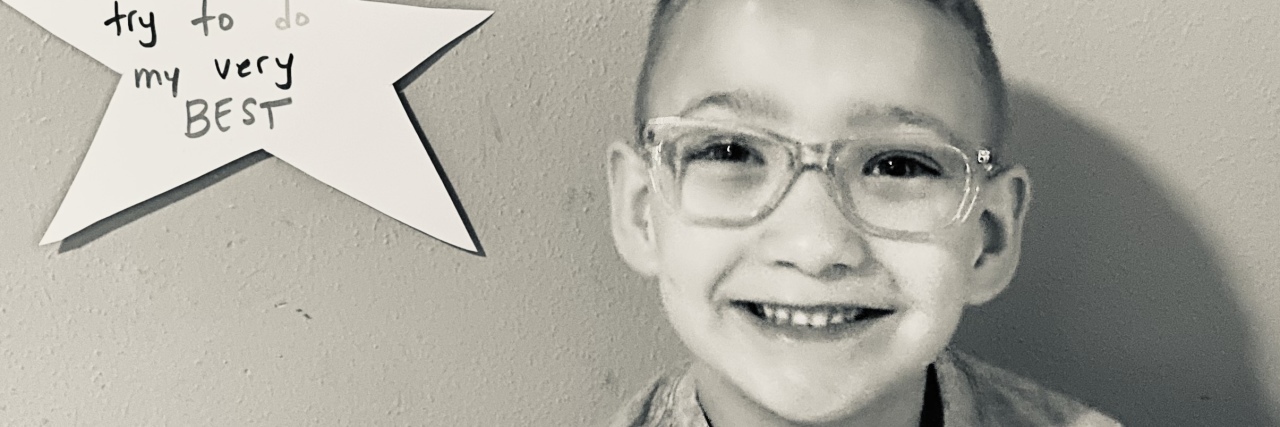The Truth Behind 'I’m Fine' as the Parent of a Child With a Disability
“How are you?”
It’s an innocuous question, right? We all hear it daily. We even ask it daily. As often as we hear it, though, as a society, we seldom deviate from the standard “I’m fine” reply. Are we really all fine, and how would we be perceived if we gave a more honest, transparent response? Today, I’m going to tell you what “I’m fine” really means for me. This is what being fine means through the lens of parenting a child with a disability.
Sometimes, it means I’m tired. My life is a revolving door of doctors, therapy, speech and specialist appointments. I can’t tell you how many hours a week I spend driving him to his appointments. It’s a lot. COVID has alleviated some of this, but it also replaced it with pouring more onto my already full plate. When my son couldn’t go to therapy — and some kids still can’t — who do you think became the physical, occupational and speech therapist? I did!
Many children with disabilities don’t sleep through the night. My son is not able to dress, wash or feed himself. And then I have to do all of that for myself. So, I live in a constant state of exhaustion. You don’t have to tell me that I look tired. That’s just my face now. I might not tell you, “My son couldn’t fall asleep until 3 a.m. and I’m dragging today.” So I just say, “I’m fine.”
Often, it means I’m scared to tell you how it’s really going. I don’t want to tell you how I’m watching my son struggle to write his name or use utensils. That recently I have admittedly allowed him to eat with his hands because sometimes, it’s just easier. Easier for me. I don’t want to say that my son cries every single day because his brace hurts, or that I force him to wear it even though it does. I don’t want to talk about the tears I cry because I can’t handle seeing his. I hate the thought of verbalizing how it feels to have my child ask me why he isn’t the same as the other kids. Because that stuff? That’s how it’s really going.
I say “I’m fine” instead of saying that I feel like a failure most of the time. Like my son deserves someone more patient who possesses better skills required to care for him. I question, second, and third guess every single decision I make for him. The pain he experiences from treating his cerebral palsy is the stuff of my nightmares. Should we have had that surgery or could we have tried an alternative treatment? Is his quality of life afterward worth the pain it inflicted? There’s no way to know, and ultimately there’s no correct answer. The stress involved in all of these decisions is tangible. It’s become an entity in our home. This stress is what makes me most feel like I’m not good enough.
Sometimes, “I’m fine” means that I don’t want to talk about how we’re doing. It could mean I’m in denial or I don’t want to think about any of this. Sometimes it’s easier not to bring attention to what is going on and to escape. So instead of sharing, I compartmentalize, box all the feelings away and enjoy the short-lived oblivion.
There are times when “I’m fine” means just that. I’m fine. We’re good. My son slept last night and ate real food today. He wrote his name legibly and made an A on his spelling test. He wore his brace all day without complaint. He hasn’t busted his head open in a week or two or taken any other nasty falls. He’s letting me stretch him in the morning so he’s getting around a little better. None of the other kids have asked him about his “robot legs” lately and he must feel like he’s blending in better because he hasn’t cried about being different in a few weeks.
We even had a one-month stretch without two-hour one-way drives for specialist appointments. He’s been healthy for a few weeks. I feel strong and confident in my ability to make decisions that will help him. I’ve been resting, exercising and taking time for myself. Last night, before bed, he told me that I was the best mommy ever.
So today, if I tell you I’m fine, I really am.

